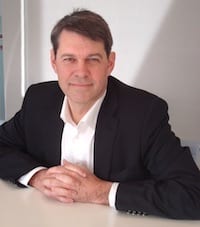
Mark Pumfrey, head of Europe, Middle East and Africa at Liquidnet said the institutional block trading venue is benefitting from the buyside having to focus on best execution under MiFID II as it had a record month in October.
Pumfrey told Markets Media: “The third quarter was very good but October has been our best ever month with a 26% increase on our previous best ever month. MiFID II shifts best execution responsibility to the buyside and as they analyse venues we stand out on any measure.”
Liquidnet said in a statement that it had a record third quarter in Europe as average execution size was $1.5m and total principal traded rose to $34.7bn, up 18.98% year-over-year. The firm said institutional investors are searching for size and improved execution quality ahead of the new MiFID II rules governing financial markets in the region, which come into effect in January 2017.
MiFID II places the onus on fund managers to measure and monitor their trading so they can evidence they have met the best execution requirements. Buyside firms will have to justify why they have executed trades in a certain way in specific market conditions, dependent on any relevant instructions from the client.
Liquidnet said it delivers an average 90 basis points of improvement versus volume adjusted prices in lit markets at the time of trade, compared to 58 basis points at the nearest venue, citing data from LiquidMetrix, an independent transaction cost analysis specialist.
“One of our key objectives is to give our members more tools to use data to achieve best execution and provide an audit trail,” added Pumfrey. “In the US we released in the past three months our algo ranking model which uses historical data to determine the best algo to use in the current market conditions. The model will be launched in Europe next year.”

Mark Pumfrey, Liquidnet
The firm said volumes in its algorithmic products have been growing and in the third quarter of this year. Volumes in algo Liquidnet Dark, were up 86% year-on-year in total principal traded. In Liquidnet Dark orders are rested conditionally in the Liquidnet dark pool, to maximise trading with a natural block, while it intelligently takes advantage of possible liquidity from external venues.
Pumfrey said: “The Liquidnet Dark algo connects to more venues and we have worked on a number of innovations around that product. This has led to an increased use of this algo since the beginning of the second quarter of this year.”
In December last year Liquidnet launched an execution and quantitative services team group with three hires in New York to provide its network of asset managers with new and more efficient ways to source liquidity in its own pool as well as at external venues. In March this year Liquidnet hired Chris Jackson as European head of the EQS Group from Citi where he was head of execution sales for EMEA.
Pumfrey also attributed Liquidnet’s growth to the release of Liquidnet 5, a new front-end trading application, growth in membership and increased monitoring of trading behaviour in the firm’s dark pool.
“Twelve months ago we launched Liquidnet 5 and our members have found it easier to manage their blotters which has had a positive impact on the actionability of the liquidity,” Pumfrey continued. “The new platform is more flexible and gives us more ability to innovate.”
Pumfrey said the growth in membership makes it easier for institutional investors to find the other side of their trades. “Over the last 12 months we have spent a lot of time monitoring the behaviour in our pool which has resulted in higher realisation rates per match,” he added.
In Europe a few years ago Liquidnet was mainly active in the UK, and only parts of continental Europe.
“We have spent time growing and developing our membership there over the past few years to great effect and unbundling in Sweden has led to a focus on best execution and enormous growth for us there,” Pumfrey added. “In equities the job of adding new members has largely been done and our focus now is on our core strength and to innovate our products further.”
Unbundling separates the payments for trading commission and research, which the European Securities and Markets Authority is pushing under MiFID II to avoid conflicts of interest. Esma wants asset managers to either pay for research themselves or charge clients using a specific research payment account, which has an agreed budget. The UK’s Financial Conduct Authority has caused controversy by saying that the use of commission sharing arrangements to pay for research will be incompatible with Esma’s proposals.
Per Loven, head of corporate strategy at Liquidnet, told Markets Media: “Unbundling is putting a focus on best execution which will change the way the buyside interacts with the market. We have a big opportunity not just to create new TCA products, but also to deliver the best trading experience going forward.”
Loven said the best execution requirements will change the debate over dark and lit trading and the value each venue provides will become more important.
Although Liquidnet is better known for equities, last year it acquired bond trading platform Vega-Chi as the fixed income market becomes more electronic and banks have become less willing to provide liquidity due to capital constraints. In September this year Liquidnet announced the launch of a fixed income dark pool for trading corporate bonds among asset managers in the US, Canada and Europe.
Pumfrey said Liquidet Fixed Income has been reaching about $5bn a day in global liquidity and the firm has a strong pipeline of new members joining before the end of the year.
“Most fixed income desks are operating in a new paradigm and it is a big learning process for the industry. In fixed income we will be able to do what we have done in equities as more members come on board,” Pumfrey added.
Featured image by Rawpixel/Dollar Photo Club
